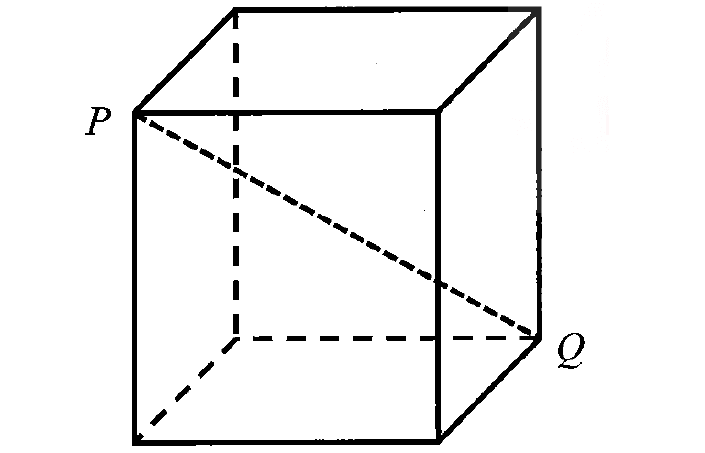EXPECTED VALUE OF A CONTINUOUS RANDOM VARIABLE
Expected value or Mathematical Expectation or Expectation of a random variable may be defined as the sum of products of the different values taken by the random variable and the corresponding probabilities.
For example, if a continuous random variable takes all real values between 0 and 10, expected value of the random variable is nothing but the most probable value among all the real values between 0 and 10.
That is, the value which has more chance to occur.
Let "x" be a continuous random variable which is defined in the interval (-∞ , +∞) with probability density function f(x).
Then, the expected value is given by
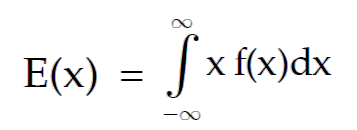
Expected value of x2 is given by
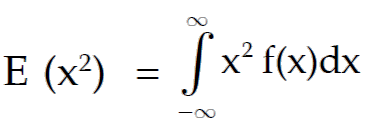
Note :
Expected value is also called as mean
Properties of Expected Value
1. Expectation of a constant k is k
That is,
E(k) = k for any constant k
2. Expectation of sum of two random variables is the sum of their expectations.
That is,
E(x + y) = E(x) + E(y) for any two random variables x and y.
3. Expectation of the product of a constant and a random variable is the product of the constant and the expectation of the random variable.
That is,
E(kx) = k.E(x) for any constant k
4. Expectation of the product of two random variables is the product of the expectation of the two random variables, provided the two variables are independent.
That is,
E(xy) = E(x).E(y)
Whenever x and y are independent.
Examples
Example 1 :
In a continuous distribution, the probability density function of x is

Find the expected value of x.
Solution :
Expected value of x is given by
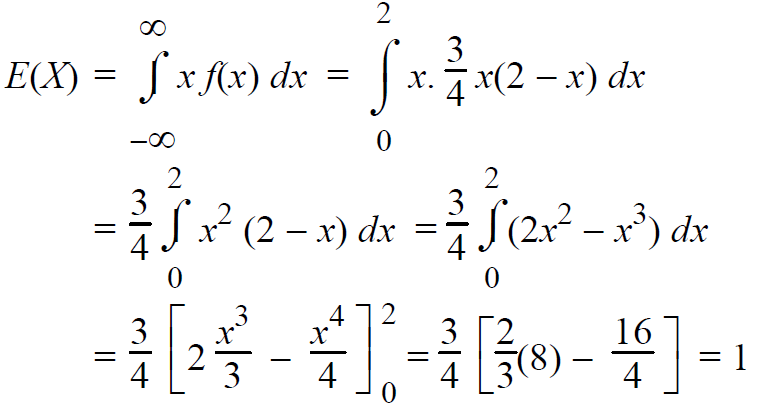
Therefore, the expected value of x is 1.
Example 2 :
In a continuous distribution, the probability density function of x is

Find the expected value of x.
Solution :
Expected value of x is given by
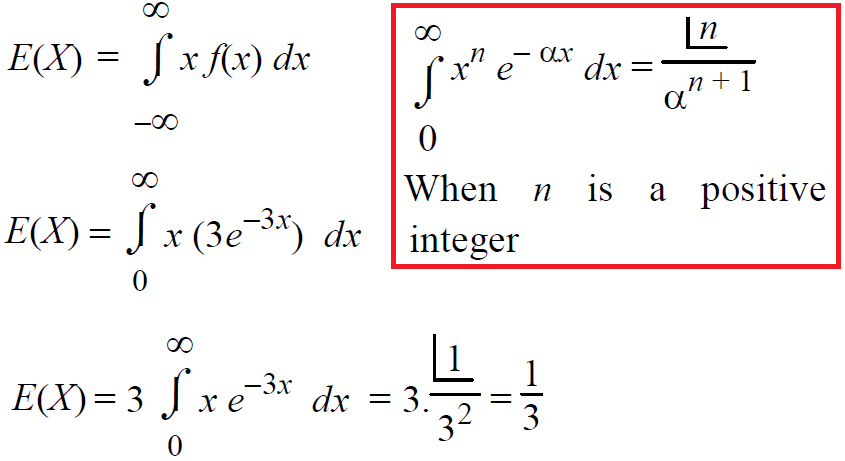
Therefore, the expected value of x is 1/3.
Kindly mail your feedback to v4formath@gmail.com
We always appreciate your feedback.
©All rights reserved. onlinemath4all.com
Recent Articles
-
Digital SAT Math Problems and Solutions (Part - 151)
Apr 26, 25 11:18 AM
Digital SAT Math Problems and Solutions (Part - 151) -
AP Calculus BC Problems with Solutions
Apr 26, 25 05:49 AM
AP Calculus BC Problems with Solutions -
Digital SAT Math Problems and Solutions (Part - 150)
Apr 25, 25 11:46 AM
Digital SAT Math Problems and Solutions (Part - 150)
